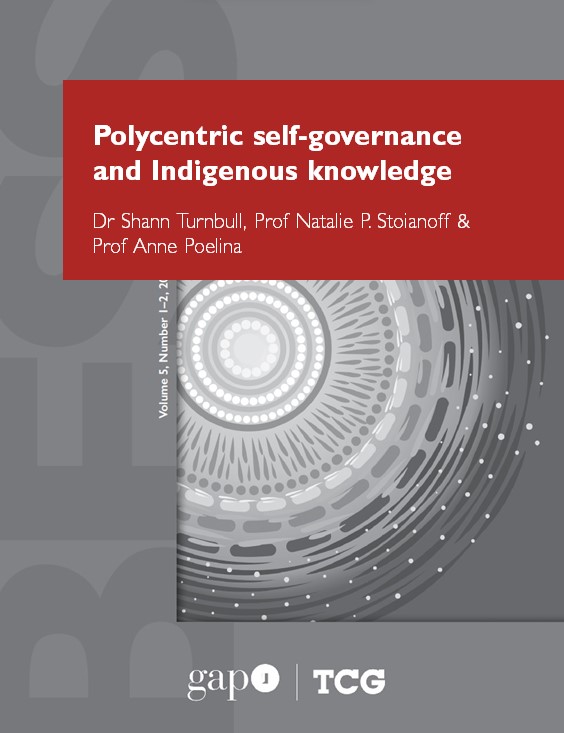Polycentric self-governance and Indigenous knowledge
DOI:
https://doi.org/10.54337/ojs.bess.v5i1.8138Keywords:
environmental wellbeing, First Law, Indigenous knowledge, minority voices, polycentric self-governanceAbstract
This article's main aim is to discuss research exploring how the self-governing practices found in Indigenous societies, biota and modern organisations can be embedded into the constitutions of legal entities to protect and share the wellbeing of humanity, biota and the planet. In this paper, we explore how Australian Indigenous knowledge and practices can be embedded into organisational entities and discuss how this can be achieved by reformatting Ostrom's design principles to be incorporated into corporate constitutions following an ecological form of governance practised by Indigenous Australians. This form of polycentric self-governance can aggregate the voices of minorities representing local environments up to a global level. We use case studies, system science and biomimicry to explore polycentric self-governance and how organisations can adopt it to focus on the wellbeing of all stakeholders. In particular, the paper highlights how Indigenous knowledge can contribute globally to achieving societal sustainability.

Downloads
Published
Issue
Section
License
Copyright (c) 2023 Dr Shann Turnbull, Prof Natalie P. Stoianoff, Prof Anne Poelina

This work is licensed under a Creative Commons Attribution-NonCommercial-NoDerivatives 3.0 Unported License.
This journal provides immediate open access to its content on the principle that making research freely available to the public supports a greater global exchange of knowledge.
Articles published in BESS follow the license Creative Commons Attribution-NonCommercial-NoDerivs 3.0 Unported (CC BY-NC-ND 3.0)
Authors retain copyright and grant the journal right of first publication with the work simultaneously licensed under a Creative Commons Attribution License: Attribution - NonCommercial - NoDerivs (by-nc-nd).
Further information about Creative Commons




